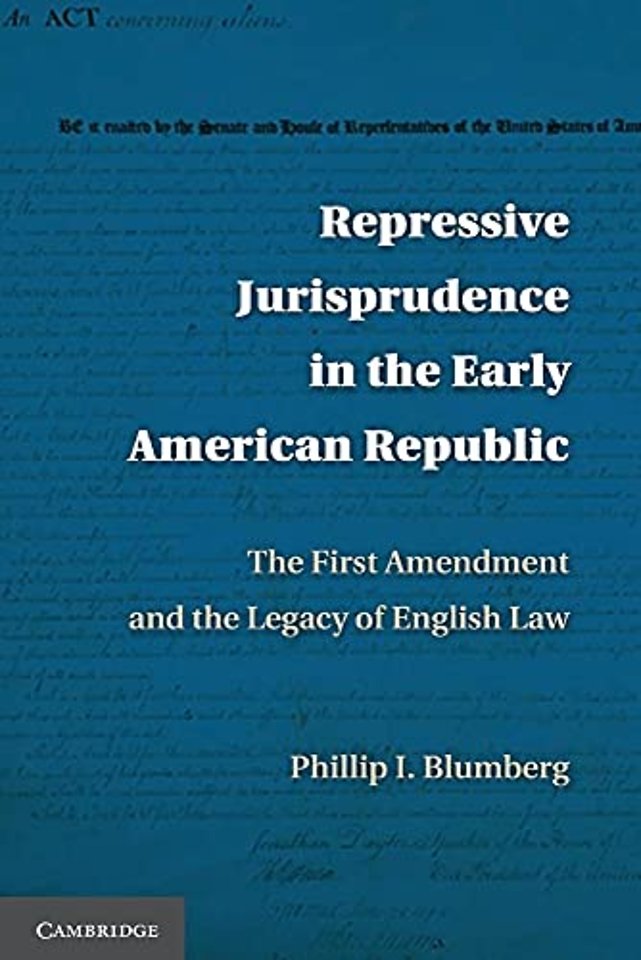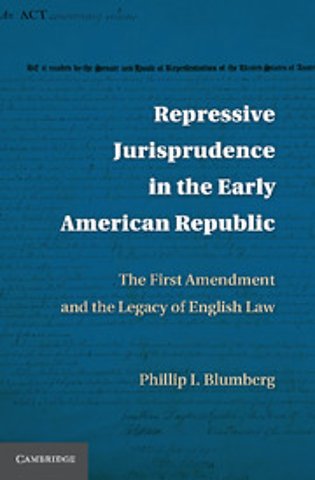Repressive Jurisprudence in the Early American Republic
The First Amendment and the Legacy of English Law
Samenvatting
This volume seeks to explain how American society, which had been capable of noble aspirations such as those in the Declaration of Independence and the Constitution, was capable of adopting one of the most widely deplored statutes of our history, the Sedition Act of 1798. It examines how the political ideals of the American Revolution were undermined by the adoption of repressive doctrines of the English monarchial system - the criminalization of criticism against the king, the Parliament, the judiciary, and Christianity. Freedom of speech was dramatically confined, and this law remained unchallenged until well into the twentieth century. This book will be of keen interest to all concerned with the early Republic, freedom of speech, and evolution of American constitutional jurisprudence. Because it addresses the much-criticized Sedition Act of 1798, one of the most dramatic illustrations of this repressive jurisprudence, the book will also be of interest to Americans concerned about preserving free speech in wartime.
Specificaties
Inhoudsopgave
Net verschenen
Rubrieken
- aanbestedingsrecht
- aansprakelijkheids- en verzekeringsrecht
- accountancy
- algemeen juridisch
- arbeidsrecht
- bank- en effectenrecht
- bestuursrecht
- bouwrecht
- burgerlijk recht en procesrecht
- europees-internationaal recht
- fiscaal recht
- gezondheidsrecht
- insolventierecht
- intellectuele eigendom en ict-recht
- management
- mens en maatschappij
- milieu- en omgevingsrecht
- notarieel recht
- ondernemingsrecht
- pensioenrecht
- personen- en familierecht
- sociale zekerheidsrecht
- staatsrecht
- strafrecht en criminologie
- vastgoed- en huurrecht
- vreemdelingenrecht

